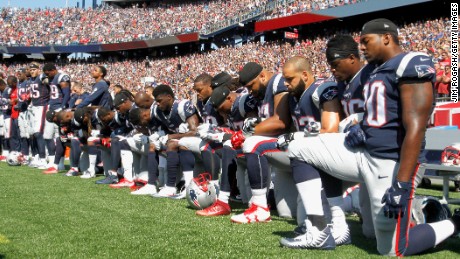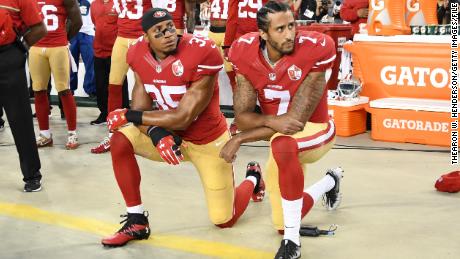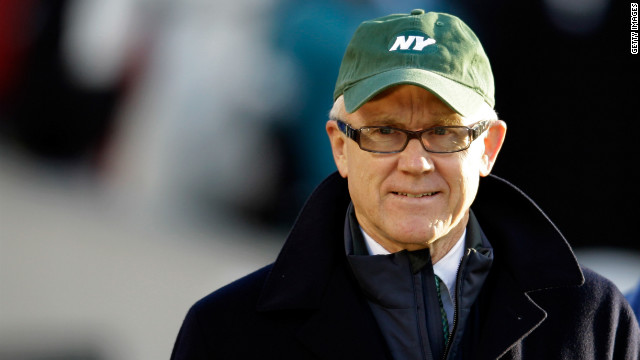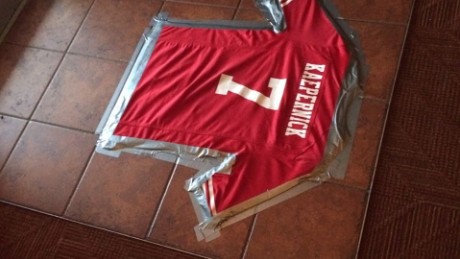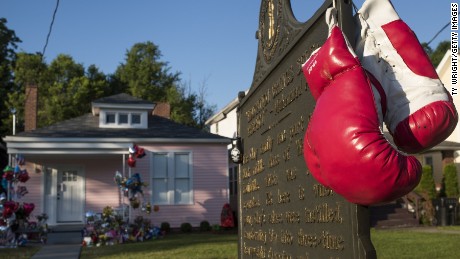In October 2017, when the complex debate about free speech, protest, patriotism and workplace conduct in the NFL was reaching its white-hot apex, NFL Commissioner Roger Goodell tried to re-assert the league’s political agnosticism. “What we are trying to stay out of his politics, he said at the NFL fall meetings that month.
His words would prove to be impotent. Since then, the league, its players, its viewership and its level of commitment to patriotic demonstrations have been favorite talking points of President Donald Trump — a fairly pure indicator of a political issue. In the same 2017 meeting, Goodell and other owners also said they wouldn’t change the league’s anthem policy, which encouraged but didn’t require players to stand. In May of this year, the league issued a new policy, much to the consternation of some players and staff.
Then, it got even more thorny. In early July, Arizona Cardinals president Michael Bidwill used the team’s official social media accounts and website to endorse Brett Kavanaugh, President Trump’s pick for Supreme Court Justice.
When it comes to politics, the NFL can’t seem to get it right. Why?
1. They try to please everyone
On September 24, 2017, owners and players linked arms, some standing and some kneeling, during the anthem preceding the Sunday matchups. It was the most visible climax of the #TakeAKnee movement, galvanized by comments Trump had made at a rally the week before disparaging players for exercising their right to protest.
It looked like the NFL was going to pull off something impressive — addressing the political concerns of players who chose to take a knee while creating a moment of finality that would pivot the conversation away from politics. Two months after the demonstration, the NFL finalized a proposal to create a $100 million fund to support social justice issues of interest to its players.
However, those seeds of goodwill were uprooted this spring, when the league announced a new anthem policy that requires players to stand for the national anthem if they’re on the field. If they don’t want to stand, they can elect to stay in the locker room during the anthem.
This sowed immediate discord on both sides. Trump, the league’s most vigorous and influential critic — who uninvited the Super Bowl Champion Philadelphia Eagles from the traditional White House visit this year — didn’t approve.
“Staying in the Locker Room… is as disrespectful to our country as kneeling. Sorry!” he tweeted in June. In July at a rally in Great Falls, Montana, he said the new policy was “worse” than the old one.
Some players didn’t approve, either. On July 10, the NFL Players Association filed a grievance challenging the policy, stating the NFLPA was not consulted on the issue, which is part of a legal agreement with the league.
In this way, the NFL has outright played itself.
“It wasn’t easy, but they’ve been able to make this situation almost as bad as they possibly could,” says David Niven, who teaches a Sports and Politics class at the University of Cincinnati. “The NFL has chosen the one position that can offend literally everyone, which is to discourage politics and yet engage in politics, thereby making everybody feel unwelcome.”
2. Players and owners seem to operate by different rules
It’s no secret that taking a knee on the sidelines has turned out to be a career-killer. Colin Kaepernick and Eric Reid, the earliest adopters of the gesture, have both filed grievances against the NFL accusing the league of colluding to deny the players jobs after they reached free agency (a period in which a football player isn’t under contract with a team and can be approached with an offer).
Other players who have taken a knee have been vilified by the public. They’ve been called “sons of bitches” by the President of the United States. And now, many are fighting back against an anthem policy they claim denies them their constitutional rights.
And yet, the political bar seems a lot lower — and ill-defined — for the NFL’s owners and coaches. There’s the Cardinals president’s endorsement of Kavanaugh, made even more curious by some statements he made after the fact.
According to ESPN, Bidwill said his letter about Trump’s SCOTUS pick wasn’t about politics, and said he thinks players should “restrict their statements” on game days.
“People are saying stick to sports? You know what? We ask our players 20 days a year — game days — to restrict their statements,” Bidwelll said. “The rest of the days, we want our players to get engaged in the community.”
CNN has reached out to the NFL for comment on Bidwell’s endorsement.
But Bidwell is far from the only NFL owner or coach to blur the line between politics and sports; between the responsibilities of a public job and their freedoms as private citizens. In March 2017, Denver Broncos General Manager John Elway wrote a letter, on what appeared to be Denver Broncos team letterhead, endorsing Judge Neil Gorsuch for the Supreme Court. A few months later, he wrote a statement regarding the #TakeAKnee movement saying it was time to “take the politics out of football.”
In March of this year, Tampa Bay Buccaneers owner Ed Glazer hosted Trump at a top-dollar fundraiser in his private home in Beverly Hills. And last month, the White House nominated New York Jets’ owner Woody Johnson to be the US Ambassador in the UK. Surely there has been similar coziness between the NFL’s top brass and past administrations, but in the current climate such overlaps do invite pause.
3. The NFL espouses a patriotism free of politics
Before all of this went down, patriotism was a great unifier in the NFL. The flyovers, the military guests of honor, the grand billowing expanse of the red, white and blue all harmonized perfectly with a Sunday full of red-blooded American football. However, this all existed within an odd assumption: If sports isn’t political, then what about all of the patriotism enveloping it? Is patriotism political?
Stephen Mosher, a professor at Ithaca College who specializes in sports and its intersection with culture and political resistance, says patriotism as a universal sentiment has always been, in this context, an oversimplification.
“There are few, if any, cultural products that are ‘experienced by everyone,'” he tells CNN. “The lowest common denominator then is a superficial patriotism that is monolithic and completely ignores free speech.”
This is complicated by the 2015 “paid patriotism” scandal, in which a Senate report revealed the Defense Department paid millions of dollars to pro sports teams — including several NFL teams — for patriotic displays. These items included military homecomings, special presentations, flag displays and performances. In 2016, the NFL ended up returning $724,000 of taxpayer money spent on these tributes.
“This not only betrays the sentiment and trust of fans, but casts an unfortunate shadow over the genuine patriotic partnerships that do so much for our troops,” the report stated.
Is that political?
As the country has changed over the years, issues of racism, police brutality, immigration law, and basic civility have led to large-scale examinations about what it really means to be an American.
“The things we would have assumed we have in common and the values we would have assumed we share are not standing up to scrutiny and crisis and division,” says Niven. “There is no ‘universal’ anymore, not even in football.”
4. Players are both individuals and tools of the trade
The NFL is a billion-dollar business. Its players aren’t just employees, they’re money-makers; finely-hewn tools; quantifiable assets and, at times, liabilities.
They’re also people like any other, with opinions, emotions, concerns, and the American right to express them.
Reconciling the athlete with the man isn’t just a problem for the NFL. It’s a problem for the fans. And that can invite mistrust and misunderstanding.
“Owners want to maximize the brand and maximize the profits, and in this way the players are simply a means to an end, and thus can be seen as less than human,” Mosher, the Ithaca College professor, says.
While sports has always provided a platform for political expression and change, such discussion is seen infrequently in the NFL. Richard Lapchick, the founder and director of the Institute for Diversity and Ethics in Sport, has been a leader in this kind of thought for decades.
“I’ve been trying to get athletes to come out on social justice issues for decades, and we may get an athlete every few years or so,” he says.
“And that [NFL] season, starting in September 2017, unleashed a current of athletes that were never going to turn back. Now that they’re being asked about important social justice issues, it reflects the idea of valuing them as human beings.”
After all, being an NFL player is about more than the game. As a public figure, often with a measure of wealth and connections at his disposal, every NFL player has the potential to be a very visible role model and agent of change. That kind of star power is an inextricable part of the way the league works — as Niven says, “Fans want to see players play, they don’t want to see owners own.”
But ironically, some of the same fans who pack stadiums and living room couches to spend three hours a week with these players are still uncomfortable when the players say or do something that is a reminder of their existence outside of the sport.
“The public simply has not done the work to see the players as anything but vehicles for their entertainment.” Mosher says. “Players in the 21st century simply have had enough of the ‘gladiator thing’ and are expressing themselves as human and citizens.”
5. The idea of ‘sticking to sports’ is becoming harder to live by
“Stick to sports.” It’s the favorite line of anyone who doesn’t want to hear anything from an athlete if it isn’t a play call. It’s a hard line to live by as the divisiveness of the political climate grows.
“Politics has always been in sport. I’ve always maintained that sport is a reflection of society,” Lapchick says. In fact, he says, people forget that there were several events that led up to Kaepernick’s dissent, like a trickle of rain that becomes a storm.
“I think a moment [like Kaepernick’s] was inevitable in some sport, he says. “But there were events preceding that. When Muhammad Ali died [in 2016], and 100,000 packed the streets of Louisville, it wasn’t just because of the athlete he was, it was because of the man he was and what he stood for.”
In the NBA, he continued, some of the league’s biggest stars have come out with strong political and social justice statements. LeBron James, Dwayne Wade and Carmelo Anthony spoke openly about racial tensions in America while onstage at the 2016 ESPYS. NBA coaches and NBA commissioner Adam Silver issued strong statements in support of their players’ advocacy.
“The athletes saw the public respond very favorably to these things,” Lapchick says. Just before Kaepernick’s demonstrations caught major attention, Lapchick himself attended a Vatican summit regarding “sport at the service of humanity.”
“It was a stage well-set for [Kaepernick] to do that,” he says. “And he was willing to make the sacrifices to speak out.”
As for the future of politics and sports, Lapchick says it’s not going to go away.
“The athletes are going to continue to speak out, and that overall is going to have a positive impact,” he says. “We are in a time when sensitivity is dulled and people think they can say whatever thing is on their mind; racist and dumb things. It helps us to understand where we have to go. Maybe we really haven’t changed that much, we’re just exposing things in our culture that were there all along.”
